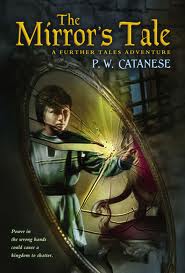中文词源
tale 故事,历险记,讲述,叙述
来自古英语 talu,计算,数数,故事,寓言,来自 Proto-Germanic*talo,计算,告知,来自 PIE*del, 瞄准,计算,思考,词源同 tell,teller,talk.
英语词源
- tale
-
tale: [OE] A tale is etymologically something that is ‘told’. The word is descended from a prehistoric Germanic *talō, a derivative of the base *tal-, which also produced English talk and tell. Of its Germanic relatives, German zahl, Dutch getal, Swedish antal, and Danish tal all mean ‘number’, reflecting a secondary meaning ‘reckoning, enumeration’ which once existed in English, perhaps as an introduction from Old Norse (it survives in the related teller ‘counter of votes’ and all told).
=> talk, tell - tale (n.)
- Old English talu "series, calculation," also "story, tale, statement, deposition, narrative, fable, accusation, action of telling," from Proto-Germanic *talo (cognates: Dutch taal "speech, language," Danish tale "speech, talk, discourse," German Erzählung "story," Gothic talzjan "to teach"), from PIE root *del- (2) "to recount, count." The secondary Modern English sense of "number, numerical reckoning" (c. 1200) probably was the primary one in Germanic; see tell (v.), teller and Old Frisian tale, Middle Dutch tal, Old Saxon tala, Danish tal, Old High German zala, German Zahl "number."
The ground sense of the Modern English word in its main meaning, then, might have been "an account of things in their due order." Related to talk (v.) and tell (v.). Meaning "things divulged that were given secretly, gossip" is from mid-14c.; first record of talebearer "tattletale" is late 15c.
权威例句
- 1. The story ascends from a gothic tragedy to a miraculous fairy-tale.
- 故事从一个哥特式悲剧升华为神奇的童话。
- 2. Roy told his sorrowful tale with simple words anybody could understand.
- 罗伊用简单的、人人都能理解的语言讲述了他那个伤感的故事。
- 3. He described it as an extraordinarily tangled and complicated tale.
- 他说那是一个非常曲折复杂的故事。
- 4. She was like a princess in a fairy tale.
- 她就像童话里的公主。
- 5. a cautionary tale about the problems of buying a computer
- 有关购买计算机时可能遇到种种问题的告诫

